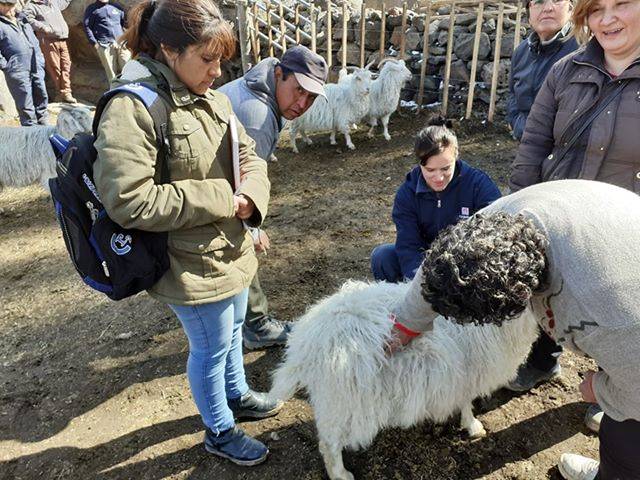Within the framework of the FONTAGRO project "Innovation and intensification for adaptation to climate change in extensive family livestock farming", on Monday, September 9, a talk was held on different diseases in sheep.

It was attended by more than 40 people from different educational institutions and producers' organizations. Local technicians from SENASA and the Undersecretary of Family Agriculture accompanied the event.
Veterinarians Marcela Larroza and Agustin Martinez from the Animal Health Group of the INTA Bariloche Experimental Farming Station gave a presentation on the factors that influence animal health and the different symptoms of diseases; the alternatives available for prevention and treatment were discussed in depth. There was a lively exchange of questions and experiences among the participants.
The following day, visits were made to the fields of the Nehuen Co Community. The Community is located in Paraje El Chaiful, 60 kilometers from the city of Ingeniero Jacobacci. This organization is made up of 17 families and works together with INTA on different issues. From this articulation, the demand for training in sanitation arose.
During the visit to the farm of Maria Lefiñir, who commented that she had had an outbreak of Huecú disease the previous year, samples of Coirón Huecú (Festuca argentina) were taken to determine the presence of the fungus that causes intoxication in sheep. With the flock and herd of Gabino Lefiu and Nilda Painemal, the animals were checked and the presence of the false tick (Melophagus ovinus) killed by the treatments previously applied by the SENASA Veterinarian was identified. In addition, the practice of clinical examination of rams was carried out.
It is important to highlight the attendance of producers from Lipetren and Maquinchao; and students from the Comallo technical school during the first day and the participation of neighbors from the Nehuen Co Community in the field work.




